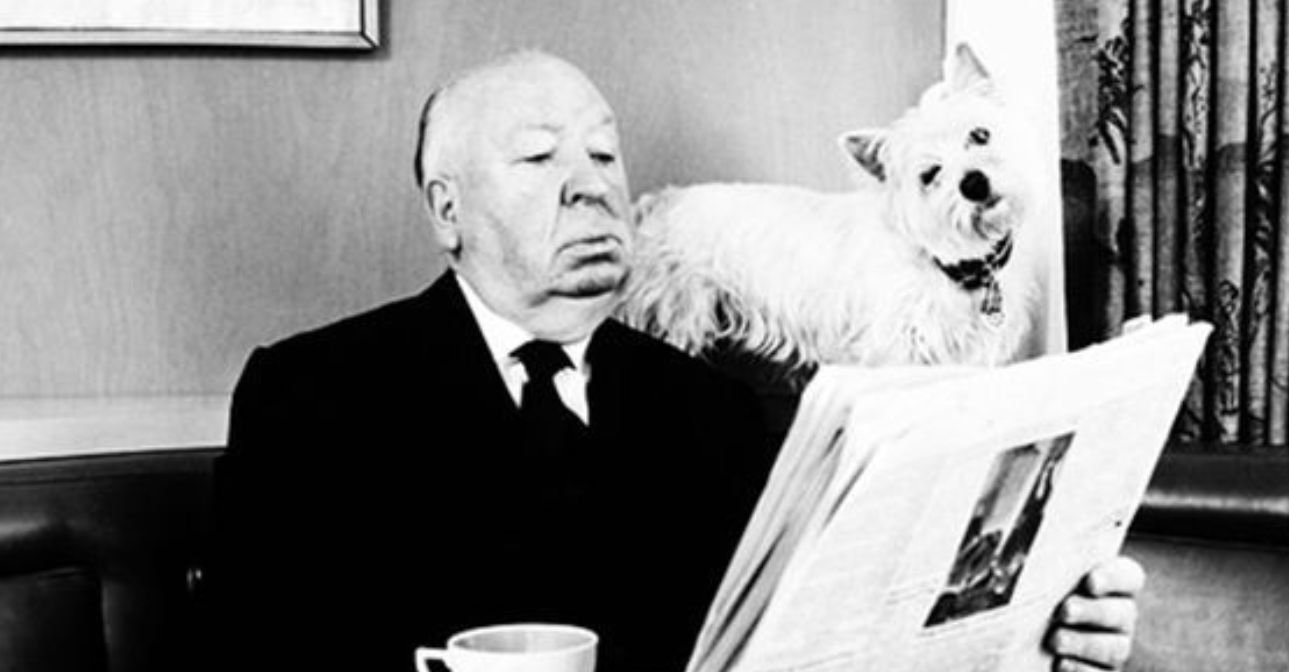Alfred Hitchcock was the undisputed master of suspense. Over 60 years ago, he changed the horror genre forever with Psycho, creating jump scares that haven't been matched to this day. Accordingly, there are countless directors who have been influenced by the acclaimed filmmaker's unmistakably unique directing style, which was itself largely inspired by the German Expressionism movement.
Hitchcock led a fascinating life, both professionally and personally. Away from the camera, he was known for his sharp wit and unconventional views. But there was also a darker side to him, which perhaps manifested itself in his ominous movie plots. Keep reading to discover 10 little known facts about the iconic director.
10 He Never Won An Oscar
Through the years, there have been multiple Oscar snubs that have stood the test of time. Amazingly, Alfred Hitchcock is among them. Despite being one of the most acclaimed directors of all time, he never won an Oscar for any of his movies.
However, he did receive the Irving G. Thalberg Memorial Award in 1968, which recognized his overall achievement as a director. In typical Hitchcock style, he gave one of the pithiest acceptance speeches of all time, uttering, "Thank you," before pausing and adding, "Very much indeed."
9 He Was An Early Supporter Of Environmentalism
While environmentalism is a cause frequently adopted by celeb activists these days, it was relatively uncommon in the early '60s. When discussing his 1963 classic The Birds, the director elaborated on his rationale behind the movie.
As Hitchcock explained in an interview, humans had been taking birds for granted, so the animals exacted their revenge. Essentially, the movie serves as an allegory for humankind's interference in nature.
8 His LGBT Casting Choices Were Innovative
There is currently much controversy surrounding the issue of straight actors playing LGBT characters, with some arguing that only gay actors should portray gay characters. All the way back in 1948, Hitchcock actually made the conscious decision to cast gay actors - John Dall and Farley Granger - in his movie Rope, whose protagonists are a gay couple. What's more, the screenplay was written by the openly gay Arthur Laurents.
In 1948, same sex relationships were illegal in the United States, so these authentic casting decisions were truly innovative considering that there are myriad modern movies that continue to favor straight actors for such roles.
7 He Had A Weird Phobia
Perhaps typical of the eccentric director, Hitchcock harbored a weird phobia that he carried with him for the rest of his life. He was deathly afraid of the police. In an interview with Dick Cavett, he revealed that he was "terrified" of police officers.
He explained that the phobia began when he was 5-years-old, when he was placed in a jail cell for 5 minutes after a "minor misdemeanor".
6 He Has Since Faced Allegations In The Wake Of MeToo
Unfortunately, it appears to be all too common for directors and producers to abuse their position of power in Hollywood. When horrific stories regarding movie mogul Harvey Weinstein surfaced in 2017, many other actresses came forward with their own MeToo experiences. And some of the accusations dated back to the 1960s.
Tippi Hedren, star of The Birds and mother of Melanie Griffith, alleged that Hitchcock harassed her on the set of the movie and was threatened when she rejected his advances. "Acquiescing to some powerful man's sexual desires for a job is not going to happen to me", the actress said.
5 But He Was Also Complex When It Came To Gender-Based Violence
One of Hitchcock's final movies, 1972's Frenzy is unlike his previous work in that it explicitly shows violence against women. When interviewed at the time, the director said that he was disgusted by the acts that the necktie murderer committed, believing them to be the most evil acts humanly possible.
4 Before 'Frenzy', He Hadn't Worked In The UK For 50 Years
Although he was born in London's East End, Hitchcock moved to the United States in 1938 after producer David O. Selznick offered him a lucrative deal of $40,000 per movie (over $700,000 today). It was in the States that he made his most famous movies, such as Rebecca, North By Northwest, and Psycho.
Although he returned to Britain during WWII to make two short movies for the Ministry of Information, he went back to Hollywood shortly after. But he traveled to Britain in 1972 to make Frenzy and this would end up being the final time he would get to see his home country. He was awarded a knighthood in 1980, but was too sick to travel to London to receive it, dying at home in Bel Air 3 months later.
3 His Wife Wrote Many Of His Scripts
Hitchcock's wife, Alma Reville, was a prolific screenwriter. At a time when screenwriting was overwhelmingly male-dominated, Alma was a pioneer for women writers in Hollywood. She helped write the scripts for myriad Hitchcock movies, including The 39 Steps, The Lady Vanishes, and Shadow of a Doubt.
2 And You Probably Didn't Notice His Daughter In 'Psycho'
In a brief role, Hitchcock's daughter, Pat, appeared in Psycho as a work colleague of Marion Crane (Janet Leigh). Bearing quite the resemblance to her renowned dad, Pat also sports Hitchcock's famous cheeky grin.
Furthermore, Pat made brief appearances in Stage Fright, in which her character was rather unflatteringly titled "Chubby Banister", and Strangers on a Train.
1 He Made A Documentary About The Holocaust
In 1945, Hitchcock led a group of filmmakers who headed to Germany to document the atrocities committed by the Nazis. Specifically, Hitchcock wanted to show the horrors of the concentration camps, which were depicted in graphic detail via footage of Jewish victims' remains. But the documentary was never shown, as it was deemed too controversial at the time.
70 years later, the movie, entitled Night Will Fall, was finally released and received unanimous praise.

